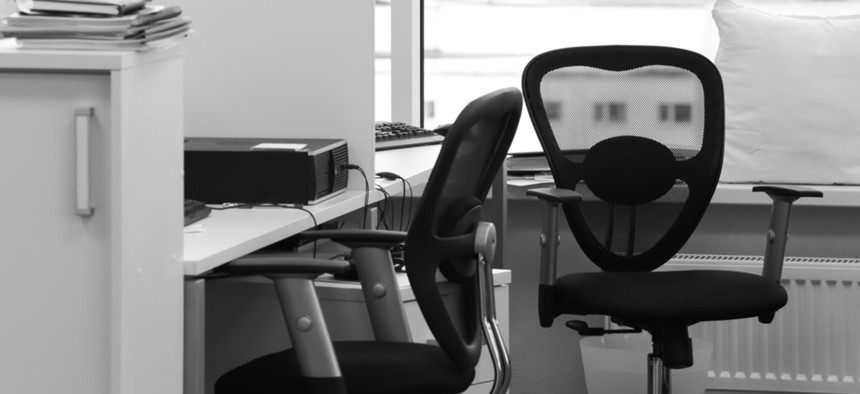
Timofeev Vladimir/Shutterstock.com
Study: There is a Downside For Organizations That Allow Working From Home
When fewer people work in the office, they don’t get the social or productivity benefits they expect from being around friends, close colleagues, and managers.
There’s plenty of research out there on the benefits of remote and flexible work. It’s been shown to lead to increased productivity, and has an undeniable benefit for work-life balance. But what does it do to everyone back at the office?
In a 2013 memo to workers explaining why the company was eliminating policies that allowed remote work, Yahoo HR head Jackie Reses argued that some of the “best decisions and insights come from hallway and cafeteria discussion,” and that actual presence in the office encourages better collaboration and communication.
The reaction from many was furious: Some accused Yahoo CEO Marissa Mayer of pushing a retrograde policy that could hurt less advantaged working mothers.
But a new study from researchers at George Mason and Boston College, published in Academy of Management Discoveries, supports the logic behind that decision. The researchers found that increased levels of offsite work can have a highly negative and contagious effect on the office environment.
The issue is that when fewer people work in the office, people who actually go in don’t get the social or productivity benefits they expect from being around friends, close colleagues, and managers. When no one’s around consistently, they end up joining colleagues who spend some or all of their time working elsewhere, compounding the problem.
“If the office is going to become a collection of employees not working together, it essentially becomes no different than a coffee shop (though perhaps with better internet and worse coffee),” the authors write.
The study looks at an unnamed Fortune 100 technology company with about 100,000 worldwide employees, where remote work is permitted and used broadly. There were two parts to the study: The first was a set of detailed qualitative interviews with employees at the company that pointed the authors towards the idea that remote work can be contagious.
“I miss having at least one day where I know I am going to come into the office and I am going to sit down with my colleagues and talk about their experiences,” one employee told the researchers.
People did cite advantages to working from home, like cutting down on travel time or avoiding distractions. But many were only doing so because the office experience they were used to got much worse, and this company had reached a tipping point where people who worked at an office felt just as isolated as those who worked remotely.
The second part of the study was a larger survey of hundreds of employees at the company to nail down these qualitative findings with data, to find out why exactly people who were working remotely frequently did so. The strongest reason across the two samples was that “Few people (if any) from my team work in the office much, so I do not benefit from coming in.”
Traditional motivations—family demands and increased productivity, for example—were mentioned frequently, but the authors found that the issue with office culture was much more significant.
Granted, the study does just follow one company—and one that embraces remote work more thoroughly than most. But as technology gets better and distributed employee bases more common, companies—especially those that invest in fancy offices with lavish perks—are going to have to reconsider what “office work” means these days.
(Image via Timofeev Vladimir/Shutterstock.com)






